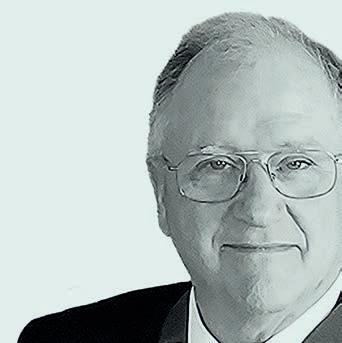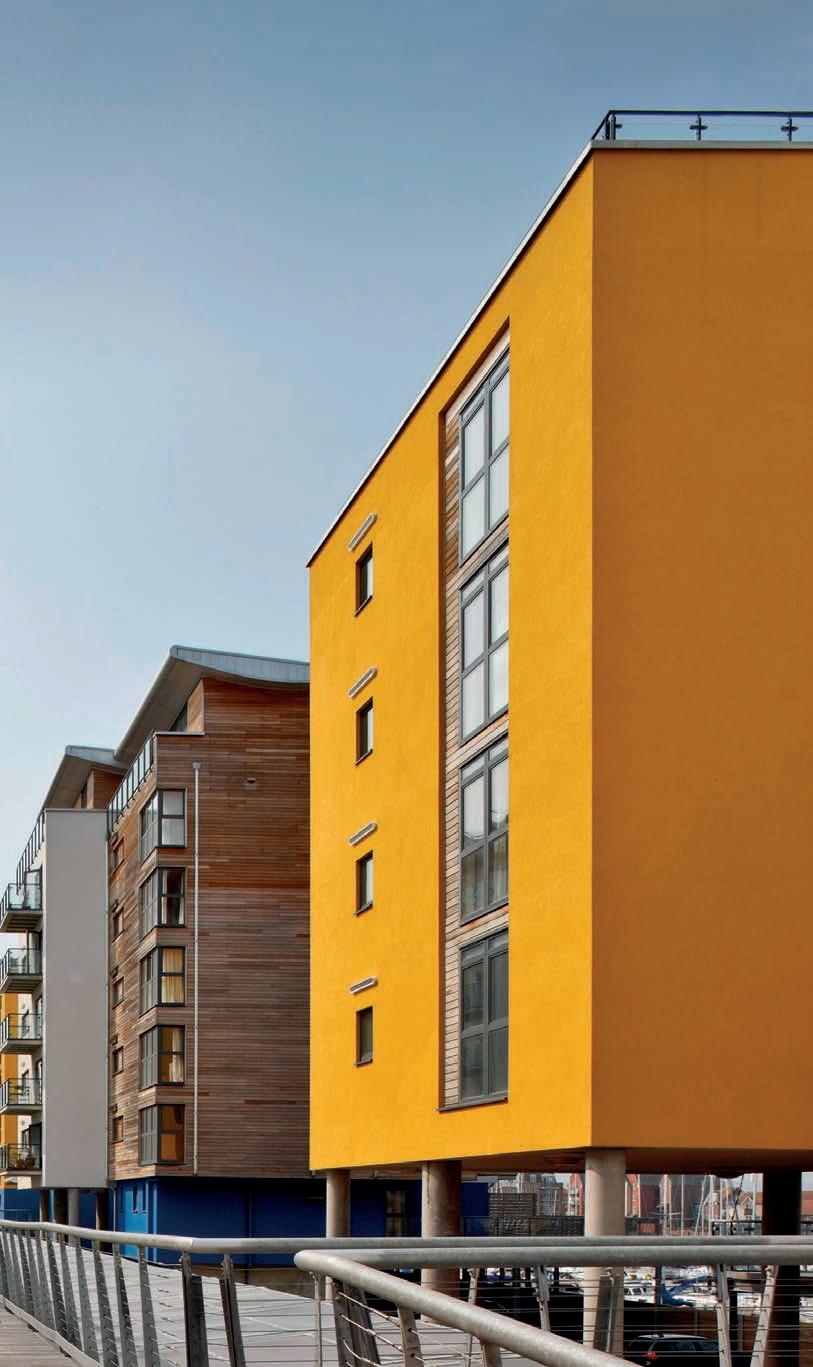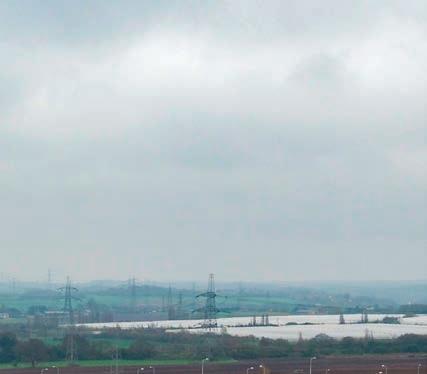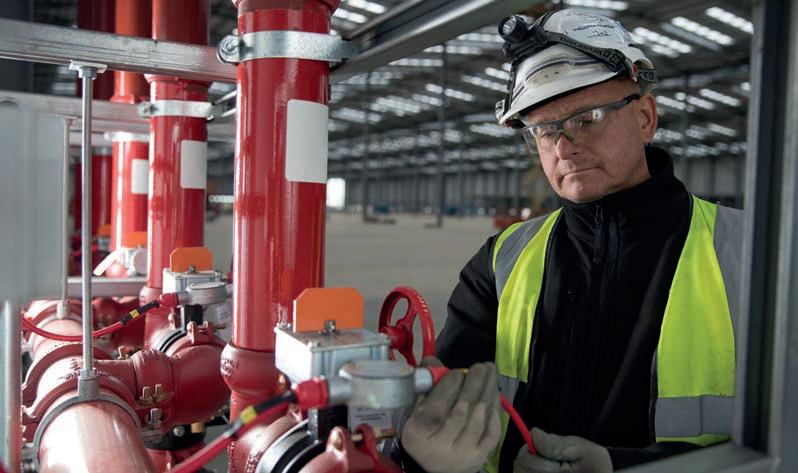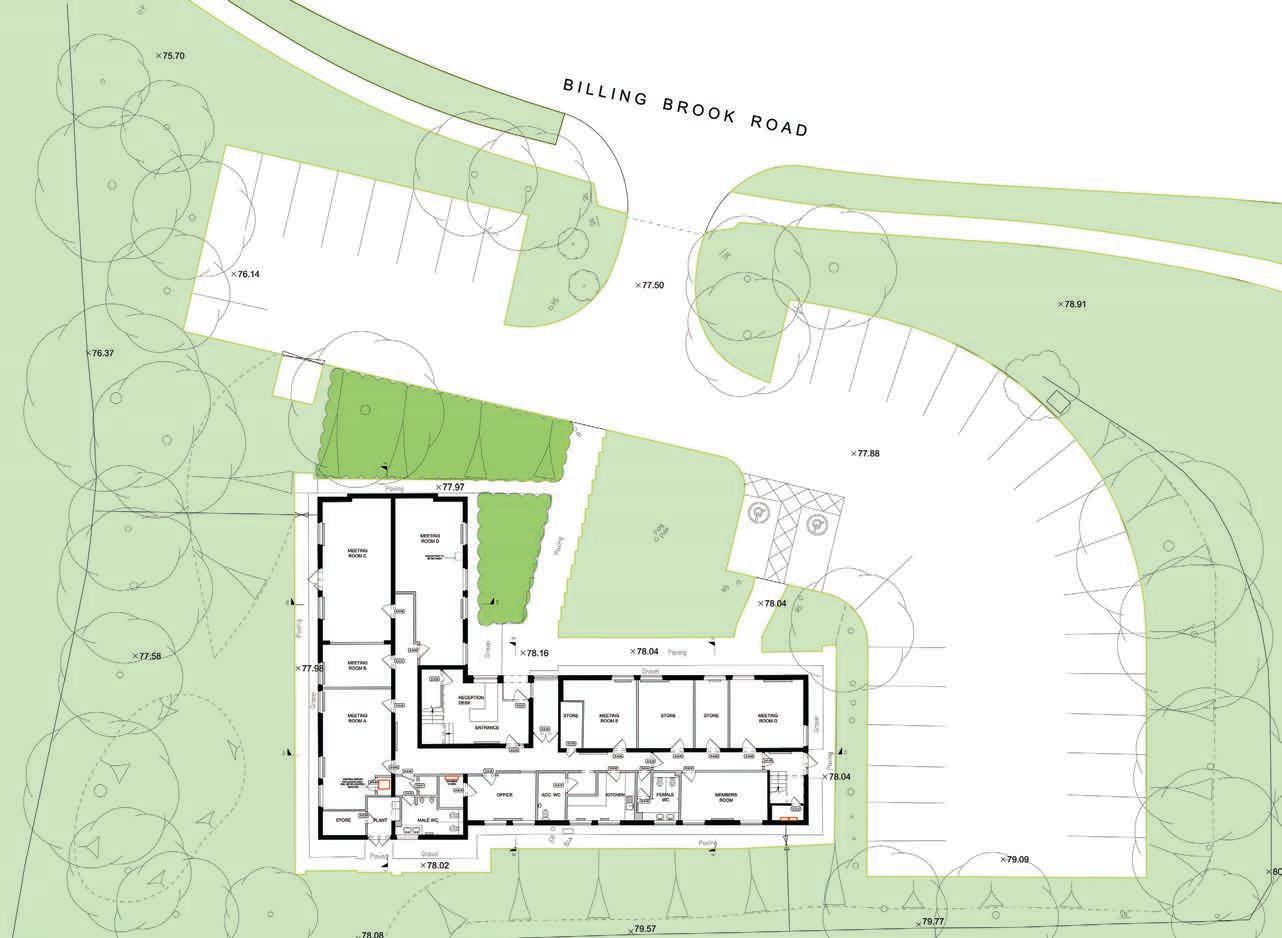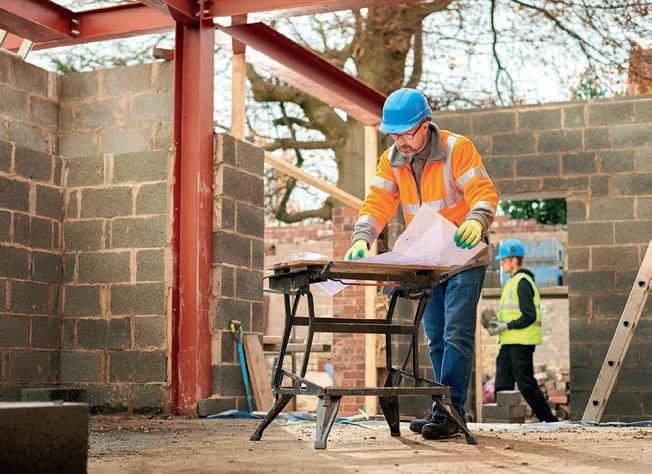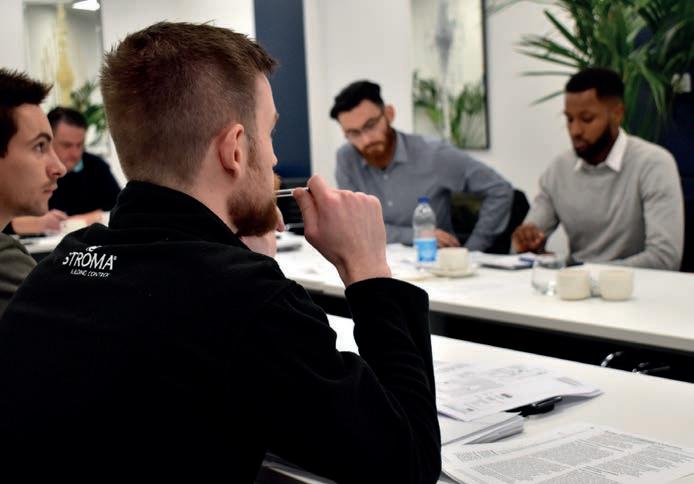
5 minute read
Step up
Step up a specialism. For Stroma, the idea took hold that these could be used as a foundation for imparting professional training and standards as part of its work to fi ll the Jonathan Gallie, Group HR skills shortage. Director for Stroma, discusses “It was quite the task to use the competencies to a training programme built map out an eff ective twoon the applied framework year training programme,” says Jonathan. “You have of CABE’s competencies to look at each element of the competency and ask ‘how do you teach that in a Stroma’s Academy off ers recent graduates, construction career changers and qualifi ed surveyors the chance to become chartered building classroom?’ and then ‘how do you apply it to the job?’. The course is a mix of academic work and vocational training – almost like an apprenticeship – with mentoring from an experienced surveyor or senior manager. We’ve worked control surveyors and building engineers. to bring in external specialists too, so there
In response to the skills shortage, Stroma is a broader understanding of the role decided to upskill its own and provide a and how it sits with other professions. For route into the profession for those with example, in year one there’s a bespoke fi re relevant qualifi cations, such as early-year regulations and safety course, and in year professionals, university and college leavers, two there’s an acoustic knowledge course. and those leaving a trade who wanted Both are delivered by external experts.” to upskill. What sets the Academy apart, Jonathan notes that the course however, is that CABE’s core competencies application process is stringent because were used to guide the learning and full choosing the right people is key. “We professional membership of CABE awaits expect people to work hard,” he says. The those who complete the course. course is a mixture of group seminars,
In 2019, Stroma became a Company webinars and one-to-one support as Partner of CABE – the same year that well as the practical elements that take CABE announced its new professional into account that people learn diff erently. competency frameworks and disciplinary “Some people need more repetition than procedures. These set out in a structured others and some are very proactive in their way the knowledge or evidence required approach, reading around the academic to demonstrate competence relevant to study and asking plenty of questions.”
CABE’s professional competencies are the framework on which the course is based
The course mixes academic work and vocational training with mentoring from an experienced surveyor or senior manager
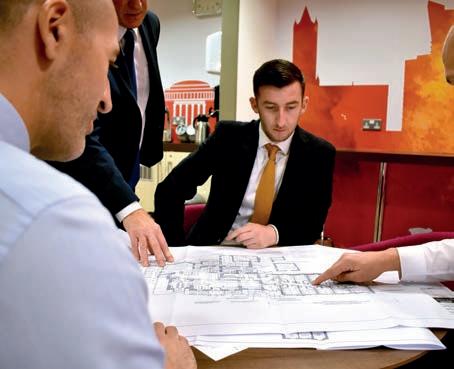
Every six weeks, the students complete a webinar or session to assess their progress. Aft er two years, they have worked towards becoming chartered building control surveyors; but there’s plenty to incentivise them along the way such as salary mapping and the opportunity to apply for CABE membership upon completion.
Assessing the assessors
The course itself is also being constantly evaluated. “There’s an anonymous survey aft er each year that acts as a barometer for what’s working well and what we need to refi ne,” he says. So what has the feedback revealed? “Unsurprisingly,” he jokes, “no matt er whether it’s a CPD event or a conference, the sandwiches are always the thing that people complain about.”
On a serious note, he felt buoyed that the feedback has been so positive and those fi nishing the academy are now achieving CABE membership. Surprisingly the students said they wanted more of certain elements, particularly the bespoke fi re course, which Jonathan believes is a reaction to the media coverage of the Grenfell inquiry. As a consequence, the fi re regulations and safety course is covered again in year two giving the students a perspective on the information one year on, with more experience.
Inevitably Covid-19 casts its shadow, too. “It has been hard. Covid-19 had stopped things for six months,” he says, but the students recommenced in December. Even though they are months behind there will be a structured plan of action to ensure they are chartered by summer 2021. “We’re condensing some sessions, bringing in more external speakers and doing more virtual learning. That’s looking more likely to be the way we deliver the academic elements for the foreseeable future anyway.”
There are some things that can’t be done virtually. The practical elements have to be carried out on-site under supervision, so they will have to be completed with Covid-19 safety restrictions in place. Technology may be able to off er some support here too, with fi lmed demonstrations or assessments that can be watched again to improve learning. “The course isn’t set in stone, it’s about refi ning and adapting it to ensure the next generation of building control surveyors are the best, most competent they can be.”
For more details about the training, visit stroma.com/people/academy Read the CABE Competency Frameworks bit.ly/BE-MCF
KNOWLEDGE AND UNDERSTANDING
A
A1 General competency
Evidential scope
Use a combination of general and specialist building engineering knowledge and understanding to apply existing and emerging technology relevant to your work.
Maintain and extend a sound theoretical approach to the application of technology in building engineering practice and demonstrate detailed knowledge of and the ability to apply technical standards, codes, regulatory and other requirements relevant to your work.
This could include the ability to: Identify the limits of your own personal knowledge and skills Strive to extend your own technological capability Broaden and deepen your own knowledge base through new applications and techniques. Evidence could include how you engage in formal learning such as: Learning new building engineering theories and techniques in the workplace, at seminars, etc Broadening your knowledge of building engineering codes, standards and specifi cations Assisting in the development of industry standards and codes of practice.
Evidence should also demonstrate: Understanding of the scope of work you undertake, and the knowledge required to be competent to do so Knowledge of relevant technical standards, codes or regulations etc Practical examples of how you have applied these standards Knowledge and understanding of inclusive design in the built environment.

